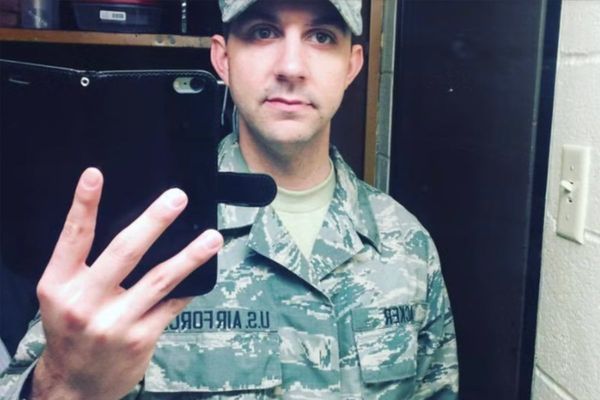
Next month, Federal Communications Commission (FCC) Chairman Brendan Carr will testify before the Senate Commerce Committee over his role in browbeating ABC into briefly suspending late-night "comedian" Jimmy Kimmel. After Charlie Kirk's assassination, Kimmel made stupid and insensitive comments that prompted Carr to wade into the fray, threatening to use his regulatory power to punish the TV host and his network. That prompted bipartisan condemnation of government interference and the upcoming Senate hearing. Now, the Foundation for Individual Rights and Expression (FIRE) wants to go further, suggesting five legal changes to make censorship by government officials more difficult.
Government Officials Work Around the First Amendment
This week, FIRE pointed out that even with the First Amendment in place, "infringements on our rights often take advantage of loopholes and gaps in our legal frameworks, leading to actions—particularly from those in power—that violate our expressive rights and chill free speech."
As examples, the free speech group pointed to Carr's threat that "these companies can find ways to change conduct and take action, frankly, on Kimmel or there's going to be additional work for the FCC ahead." FIRE also called out New York Department of Financial Services Superintendent Maria Vullo, among other state officials, who leaned on insurance companies and the financial industry to deny services to the National Rifle Association over its political advocacy. Both are examples of censoring by "jawboning"—government strongarming private industry to do what government officials are themselves not permitted to do. Biden administration pressure on social media companies to muzzle critics and suppress officially disfavored stories is another example of the pernicious practice.
In the case of FCC head Carr, Democrats unsurprisingly denounced the Trump administration official's action. But some of the harshest criticism came from Sen. Ted Cruz (R–Texas), who commented: "I think it is unbelievably dangerous for government to put itself in the position of saying, 'We're going to decide what speech we like and what we don't, and we're going to threaten to take you off air if we don't like what you're saying.'"
The First Amendment is supposed to prevent exactly that. But as the explosion in jawboning (and so much else the government does) makes clear, government officials see the Constitution's protections not as guiding principles, but as hurdles to be circumvented.
Legal Reforms To Head Off Censorship
To make end-runs more difficult, FIRE proposes legal reforms that would further circumscribe government power. Regarding jawboning, "FIRE recommends Congress pass legislation to require federal officials to publicly report their communications with social media companies about user content on their platforms." That would expose government pressure to public scrutiny and pushback through criticism, lawsuits, or invitations to explain the situation to skeptical lawmakers. Last year, FIRE drafted model legislation requiring such transparency.
FIRE also points out that it has "long supported legislative efforts to rectify the Department of Education's abuse of antidiscrimination law to suppress protected speech" on college campuses. That suppression came from Democrats during the Obama and Biden years and from the GOP under Trump. "This pressures schools to suppress any speech that is deemed hurtful to protected groups, leading campuses to commit an endless stream of free speech violations." To address the sad state of campus speech, the organization recommends passage of "the Respecting the First Amendment on Campus Act, or similar campus speech legislation, to better protect First Amendment rights at public universities by putting existing constitutional protections into federal statute" and tying participation in federal programs to respect for free speech rights.
FIRE also points out that, unlike state officials, federal officials can't currently be sued for damages when they violate people's rights. "Federal officials can only be sued to get the violations to stop, not to actually get compensation or accountability." The group recommends removing this legal shield, so federal officials have skin in the game when they violate constitutionally protected rights.
FIRE highlights the problem of strategic lawsuits against public participation (SLAPPs), which have long been used to silence critics and activists and which have grown increasingly popular with politicians. They point to Democratic California Gov. Gavin Newsom's defamation lawsuit against Fox News over reports that Newsom lied about a phone call he'd had with President Donald Trump, and Trump's massive lawsuit against Penguin Random House and The New York Times for allegedly "false, malicious, defamatory, and disparaging" coverage of his conduct in office. Using existing state legislation as a starting point, "FIRE recommends Congress pass a federal anti-SLAPP law."
Trimming the FCC's Power—and Existence
And, importantly, "FIRE also recommends Congress pass legislation to clarify that the FCC has no authority to regulate content on broadcast TV and radio." The organization notes that the government has power over broadcast TV and radio content based on old claims about the scarcity of the airwaves. Technology has long since eclipsed that argument, and the government frequently abuses its power. It should be stripped of its authority to regulate content.
Also making that point is the Competitive Enterprise Institute's Brian A. Rankin in a new study. He warns that the Trump administration is pushing for expanded authority over content, allegedly to "force television and radio station broadcast licensees to create more balanced coverage of controversial matters." He says that, as in the past, FCC regulatory power "is being used as a weapon to inhibit speech that is critical of those in power or expresses contrary views." He urges the FCC to "discard the concept of scarcity, embrace the reality that freedom rather than the regulation of news and information serves the public interest" and abandon efforts to regulate broadcast news coverage.
Or we could heed George Mason University law professor Ilya Somin's caution that "an agency that has broad power to [grant] or deny licenses to broadcasters is an inherent danger to freedom of speech." Even when there's no overt censorship, the threat of denied licenses and permissions allows for behind-the-scenes jawboning. Somin details decades of abuses by various presidents who used the regulatory power of the FCC to drive critics from the airwaves. "The FCC should be abolished," he concludes.
Next month, members of the Senate Commerce Committee will rake Brendan Carr over the coals for his abuse of FCC regulatory power to pressure ABC into taking Jimmy Kimmel off the air. Even idiots have free speech rights that government must respect. Legislators should go further and consider FIRE's proposals for laws to protect free speech. They should also rethink not just the FCC's excessive power, but its existence. Power can't be abused if it's abolished.
The post 5 Legal Reforms To Consider as Government Officials Lean on Critics appeared first on Reason.com.







